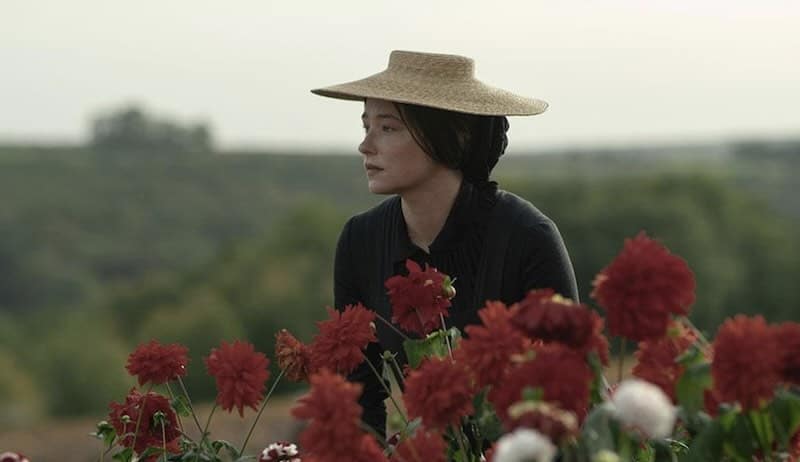Widow Clicquot tells the story of Barbe Nicole Clicquot, the woman who defied the patriarchy in the early 1800s to engineer the success of the Veuve Clicquot champagne family after her husband’s death. Haley Bennett starred as the widow.
Widow Clicquot sounds like the kind of story that I would normally wax enthusiastically about. A woman who outmaneuvers and outsmarts the men around her. But this film was on the dull side and the characters didn’t have the passion I thought should have been there.
All the actors were English and the film was in English. Thomas Napper, the director, is English. At least it was filmed in France.

Barbe Nicole married François (Tom Sturridge). He had original ideas about wine but struggled with what apparently was a mental illness or maybe a drug addiction. It wasn’t spelled out clearly. His father (Ben Miles) didn’t support his new ideas. Barbe Nicole had been around vineyards and grapes her entire life. She thought he was on to something.
When François died (possibly from suicide – another plot point that wasn’t explained fully) and left the vineyard to Barbe Nicole, she refused to sell. She created new wines, including pink champagne, and struggled to succeed. François was always in her mind, and with frequent flashbacks, was always in the story.
In the beginning of her grief Barbe Nicole seemed helpless and weak. She needed to constant attention of her maid, Anne (Natasha O’Keeffe). But she proved to have a spine of steel.
Louis Bohne (Sam Riley) worked as a salesman. He agreed to sell the wine in Russia – an illegal act because Napoleon had outlawed selling any French wine outside France. Despite setbacks, he eventually got distribution for Barbe Nicole. There were hints of homosexuality, or bisexuality, in the story. It was never made explicit if this is what drove François’ suffering. Both François and Barbe Nicole showed interest in Louis Bohne in the film.
Barbe Nicole was put on trial in an effort to force her to sell her land to a neighboring wine maker. Of course, it was all men judging her and all men testifying against her. She testified on her own behalf and managed to save the vineyards.
The film ended after her first successful harvest and sale, but cards at the end talked about how long she lived and what some of her biggest accomplishments were. The wine she made famous, Veuve Clicquot, means Widow Clicquot in English.
I’m glad to have seen the film and learned something about this remarkable woman, but the film could have been much more dynamic and compelling. You can see it on Netflix.
Discover more from Old Ain't Dead
Subscribe to get the latest posts sent to your email.

I was just wondering about this film and you reviewed it just in time! Thanks! Always trust your reviews.
Thanks. Hope I’m helpful.